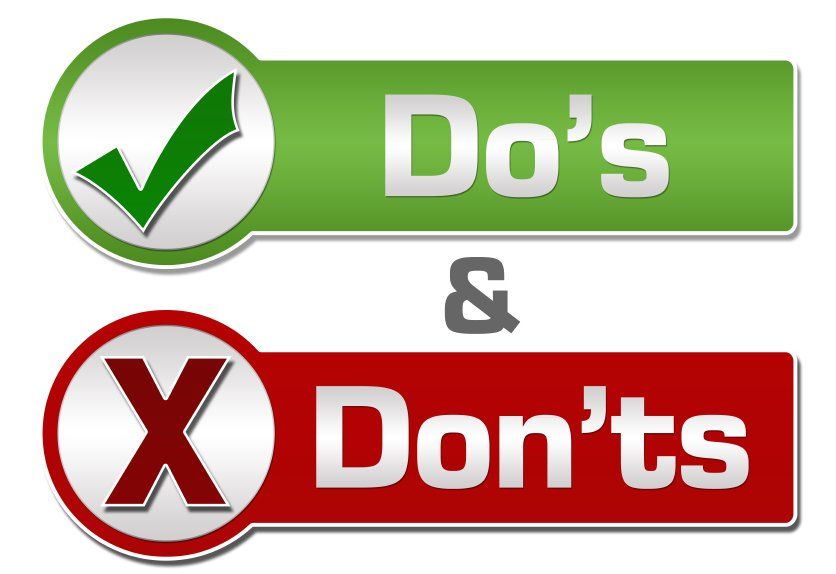Financing -
Mortgage Process - Do and Don't
Do you know the Do's and Don'ts of the Mortgage Process?
While you are considering the purchase of a new home or exploring refinancing your current home, you should not do anything that will have an adverse effect on your loan from this point through the rest of the process. We know it is tempting to begin making your new house a home or to spend your new savings on fixing your existing home, but this is the time to keep your finances stabilized until your loan closes.
The key is to contact your Loan Originator (Mortgage Broker or Banker) if you think you will be making any changes to your financial situation; even the seemingly most logically beneficial moves can backfire and cost you thousands of dollars or even your ability to obtain financing at all.
To have your pre‐approval or loan commitment remain valid please pay close attention to the do’s and don’ts below:
- Do - Provide all documentation for the sale of your car personal items, if any current home, including sales contract, closing statement, employer relocation/buy-out program if applicable.
- Do – Keep all originals, and have access to all of your pay-stubs, bank statements and other important financial documents.
- Do - Always watch your new credit report. It could have been just pulled prior to closing.
- Do - Provide your Earnest Money Deposit from your own personal bank account or acceptable gift funds.
- Do - Notify your Loan Originator if you plan to receive gift funds for closing.
- Do - Notify your Loan Officer of any employment changes such as recent raises, promotion, transfer, change of pay status, for example, salary to commission.
- Do - Stay employed if employment income is used for loan approval.
- Do - Save money to your account provided for verification of assets.
- Do - Make timely payments on all current debt obligations, including any current mortgage, car, student loan or credit card.
- Do - Notify loan officer regarding any changes to your employment status, (i.e., promotion/demotion, job loss).
- Do - Notify loan officer of any loss of income.
- Do - Notify loan officer of any depletion of funds needed to close.
- Do - Notify loan officer of change of current address, phone or email.
- Do - Notify loan officer of any deposit you expect to made not related to your payroll, pension, SSI or income tax refund.
- Do - Notify loan officer if you expect to receive gift from relative, employer, union hall or non-for-profit organization.
- Don’t- Close or open any asset accounts or transfer funds between accounts without receiving the correct documentation required for your loan.
- Don’t - Change jobs/employer without inquiring about the impact this change might have on your loan.
- Don’t - Deposit any monies outside of your payroll deposits, particularly cash or sale of personal property. Many guidelines require substantial documentation as to the source of these deposits.
- Don’t - Open or increase any liabilities, including credit cards, student loans or other lines of credit during the loan process.
- Don’t - Make major purchases prior to or during your contract, such as new car, furniture, appliances, etc. as this may impact your loan qualification.
- Don’t - Advance of any cash from credit card or borrow funds for closing.
- Don’t - Change your legal name.
- Don’t - Take any unpaid time off.
- Don’t - Schedule any vacation or time off for any reason if all possible before closing.
- Don’t - Alter any documents in any way.




